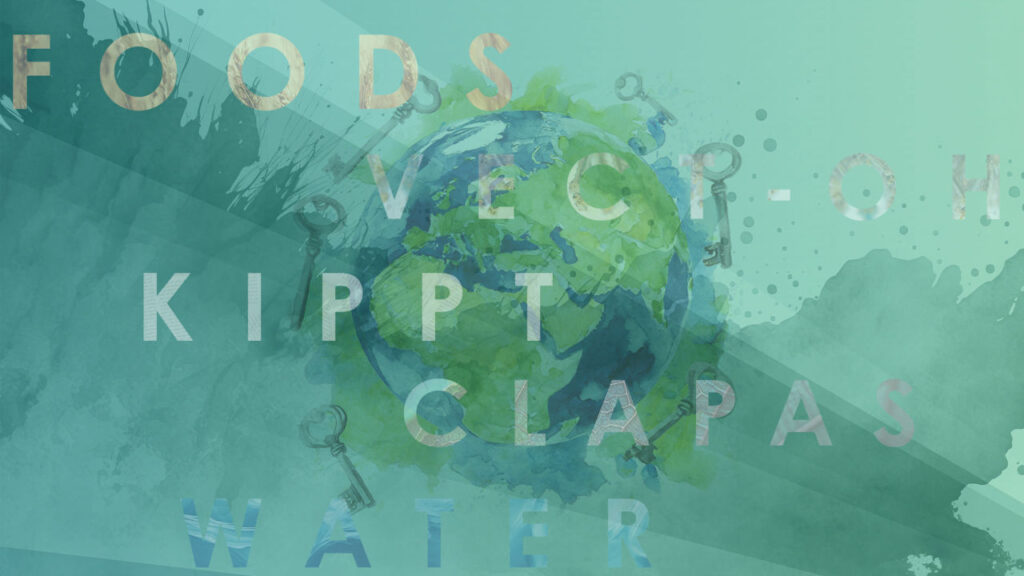Unite · Innovate · Excel: UM launches new key initiatives as part of the I-SITE program of excellence
The I-SITE program of excellence is continuing its strategy of supporting the scientific communities that give the site its unique identity and has certified five new key initiatives. For three of these—focusing on water, nutrition and food systems, and infectious risks and vectors in a One Health approach—the aim will be to continue the actions already underway at the international level. Two new key initiatives have been created, focusing on public transition policies and local collaborative research initiatives on plant and agrosystem health.

These five new initiatives were officially presented on Wednesday, April 24, 2024. This was an opportunity for Philippe Augé, President of the University of Montpellier, to highlight the financial commitment of more than €6 million to support nine key initiatives (Kim) focusing on the following themes: food and health; biomarkers and therapy; data for life sciences; water, sea, and coastline; climate risks and health issues; risks and vectors; blood sciences; and vine and wine sciences. Most of these initiatives have benefited from the momentum generated to flourish in broader schemes such as the Clé challenges of the Occitanie Vinid'Occ Region (vines and wine), Rivoc (infectious risks and vectors), and the Clé WOC challenge and the UNESCO Icireward International Center certification on water for Kim Water.
Strengthen international strategic partnerships
If there is one main objective to remember in order to understand the challenges of the three key international initiatives, it is the strengthening and consolidation of the international strategic partnerships of the members of the I-SITE led by the UM. These initiatives are funded by the UM2030 project of the France 2030 – IDéES program "Integration and Development of Idex and I-SITE ." Each UM2030 key initiative receives €200,000 in funding per year.
The Water and Foods (Nutrition and Food Systems) initiatives are focused on a single objective: to create an international doctoral platform to promote transdisciplinarity and develop the science-policy-society interface in order to enhance the career prospects of young researchers on an international scale. Foods is part of a network of 19 partners and already welcomed its first cohort in March 2024, which demonstrated the value of joint research during the Montpellier Global Days 2024.Water, meanwhile, benefits from the support of the UNESCO International Center and the momentum of the international "water family" to develop its platform "Initiative for PhD: the international, intercultural, interdisciplinary water network" in collaboration with 13 partner universities around the world.
VECT-OH has focused its efforts on the impact of science on local areas by building a global alliance with six major universities for the sustainable mitigation of vector-borne risks as part of a comprehensive approach to health (animal, human, plant). Particular emphasis is placed on the issue of urban greening in view of its potential consequences on the transmission of vector-borne diseases.
Structure multidisciplinary communities
The key initiatives funded by the I-SITE program of excellence aim to bring together communities from different research structures in Montpellier around interdisciplinary themes in order to give them greater regional, national, and international visibility. Each key initiative of the PEI receives €300,000 in support over two years to carry out its actions.
The key initiative "Public Transition Policies" (KIPPT) brings together a multidisciplinary community spread across some fifteen research units on the site. The work focuses on the pillars of I-SITE (Feeding – Caring – Protecting), but not exclusively, as transport, energy, education, and digital technology will also be addressed in order to support public actors in moving towards new, more sustainable and fairer development models.
Clapas is the acronym chosen for the key initiative "Local collaborative research actions on plant and agrosystem health." This unifying theme across the site will enable the topic of plant and agrosystem health to be further integrated into the scientific ecosystem, in particular by linking it to researchers working on animal health, human health, and social sciences.